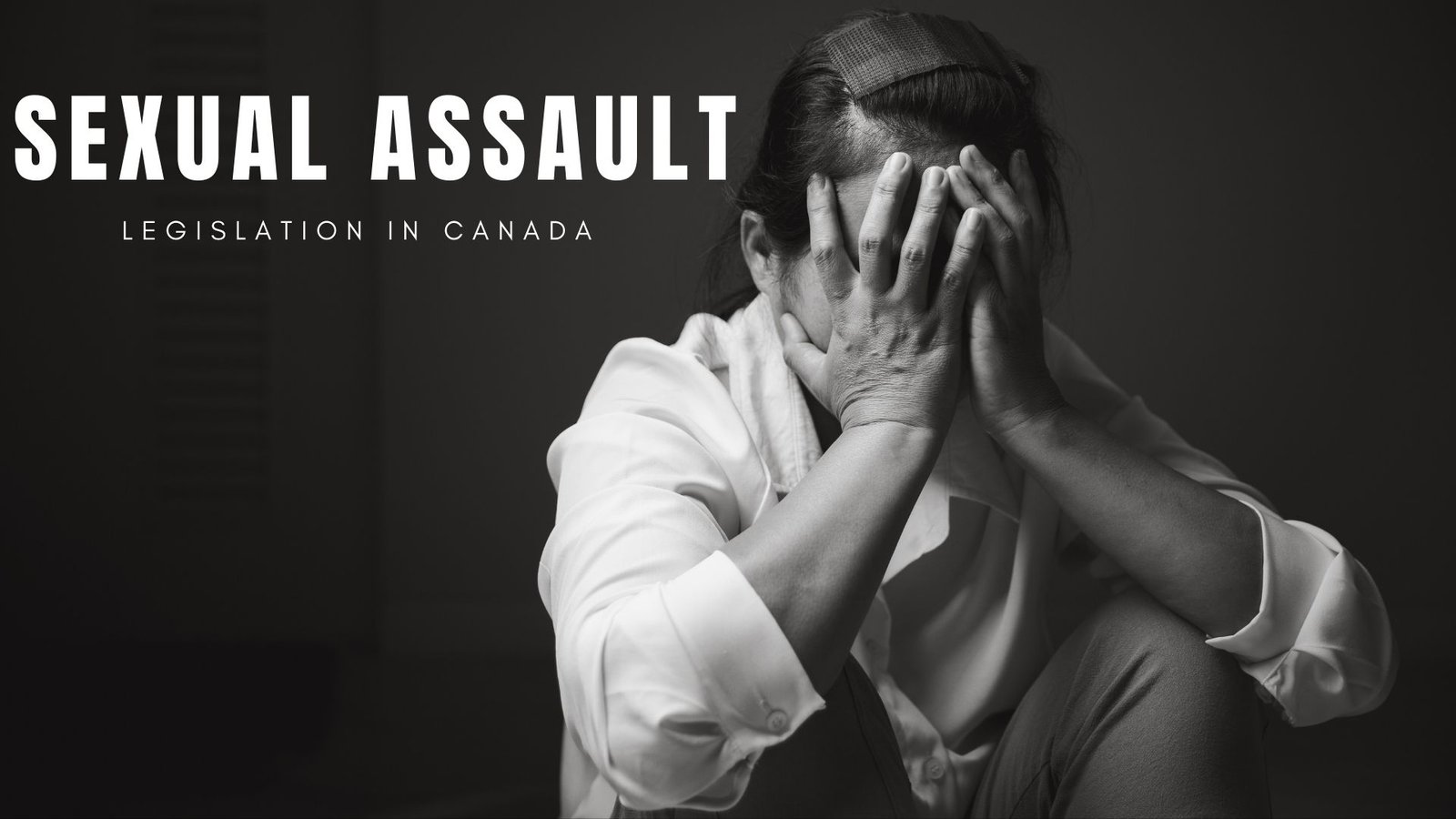On this page you will read detailed information about Sexual Assault Legislation in Canada.
As a citizen, it is important to understand the laws that govern sexual assault and protect victims in Canada. You may be unaware of the legislation that defines consent and the penalties for those found guilty of this serious criminal offense. This overview will provide a high-level summary of the key laws related to sexual assault to help raise awareness of the legal rights and protections in place for victims across the country. With this knowledge, you can better understand how the justice system addresses these crimes and support advocacy efforts aiming to strengthen laws and provide more comprehensive support services. While there is still much work to be done, Canada has made significant progress in recent decades to enact and amend laws to recognize sexual assault as a gendered crime and improve conviction rates.
Defining Sexual Assault in Canada
In Canada, sexual assault is defined as any unwanted sexual act done by one person to another without their consent. According to the Criminal Code of Canada, consent means the voluntary agreement to engage in sexual activity. Sexual assault is a criminal offense punishable by law.
Types of Sexual Assault
There are three levels of sexual assault offenses in Canada:
- Sexual assault: Any unwanted sexual touching or contact. This includes groping, fondling, or kissing without consent.
- Sexual assault with a weapon, threats to a third party or causing bodily harm: Using a weapon, threatening a third party, or causing bodily harm to the victim during a sexual assault.
- Aggravated sexual assault: Sexual assault that results in wounding, maiming, disfiguring or endangering the life of the victim. This is the most serious sexual assault offense.
Consent
For any sexual activity, consent must be voluntary, ongoing, and enthusiastic. Consent cannot be obtained from someone who is intoxicated, unconscious or otherwise incapacitated. Consent can be withdrawn at any time. The absence of a “no” does not mean “yes”. Consent must be explicit and unambiguous.
In the previous post, we had shared information about Abortion Law in the USA: A Complicated History, so read that post also.
Reporting Sexual Assault
If you or someone you know has been sexually assaulted, report it to the local police. You can also contact support organizations like shelters, crisis centers or sexual assault centers. They offer confidential support and counseling. Reporting the assault as soon as possible will assist in any criminal investigation and prosecution. Do not shower, wash or change your clothes before contacting the authorities or going to a hospital.
Though the legal definition and penalties are clear, sexual assault remains an underreported crime in Canada. Raising awareness about consent and supporting victims are important steps towards preventing these offenses.
Key Aspects of Sexual Assault Legislation
Sexual assault definition
In Canada, sexual assault is defined as any unwanted sexual act done by one person to another without their consent. Sexual assault is a criminal offense under the Criminal Code of Canada. There are three levels of sexual assault offenses:
- Sexual assault: Any form of unwanted sexual activity. This includes unwanted kissing, touching, etc.
- Sexual assault with a weapon, threats to a third party or causing bodily harm: Sexual assault that also involves a weapon, threats to harm a third party, or the infliction of bodily harm.
- Aggravated sexual assault: Sexual assault that results in wounding, maiming, disfiguring or endangering the life of the victim.
Consent
For any sexual activity, consent must be voluntarily given by all parties involved. Consent cannot be obtained through threats, coercion or manipulation. Consent must be continuous, and can be withdrawn at any time. The law also states that consent cannot be given by someone who is incapacitated by alcohol or drugs.
Reporting and Prosecuting Sexual Assault
Victims of sexual assault are encouraged to report the incident to local law enforcement. The report will be investigated, and if there is enough evidence, the case may go to trial. The standard of evidence for sexual assault cases in Canada is “beyond a reasonable doubt”. The trial process can be difficult for victims, as they may face cross-examination about their experiences.
There are also provisions in place to protect the privacy and safety of victims, such as publication bans, allowing testimony via closed-circuit television, and restricting access to court records related to the case. Victims of sexual assault have the right to legal representation, counseling and healthcare services throughout the legal process.
Overall, Canada has taken significant steps to strengthen sexual assault laws, provide support for victims, and work towards reducing the prevalence of sexual violence. However, more can still be done to continue improving the legal system’s response to these crimes.
Consent and Capacity Under Canadian Sexual Assault Law
Canadian law recognizes that valid consent is necessary for any sexual activity. For consent to be legally valid, it must be given voluntarily by an individual who has the capacity to consent.
Capacity to Consent
Under Canadian law, a person must have the mental capacity to understand and consent to a sexual act. Individuals who are intoxicated by alcohol or drugs, unconscious, or otherwise incapacitated may lack the capacity to consent.
The law evaluates capacity to consent based on whether a reasonable person in the same circumstances would have understood the sexual nature of the act and been able to consent. If an individual does not understand the potential consequences and risks of a sexual act due to intoxication, unconsciousness, or other factors, they are considered incapable of consenting.
The law also considers a power imbalance between the parties involved. When one party has a position of trust, power, or authority over the other, the subordinate party may feel obligated to consent, calling into question whether consent was voluntary.
Voluntary Consent
For consent to be valid, it must be given voluntarily. Consent is not voluntary if it is obtained through force, coercion, manipulation, threats, or violence. Consent must be ongoing, which means a participant can withdraw consent at any time. Silence or lack of protest does not equal consent.
Consent to one sexual act does not imply consent to other acts. Consent must be obtained for each new level of sexual activity between participants. Ongoing communication and checking in with your partner is important to ensure mutual comfort, safety, and consent.
In summary, for consent to be valid under Canadian sexual assault law, it must be given by an individual with the capacity and mental ability to consent, voluntarily and without coercion or manipulation, for each new sexual act. Consent can be withdrawn at any time, and consent must be ongoing and actively communicated between all participants.
Punishments and Sentencing for Sexual Assault
Prison Sentences
Those convicted of sexual assault in Canada face serious legal consequences, including potential prison time. Sentencing for sexual assault convictions varies based on factors like the specifics of the crime, criminal history of the perpetrator, and severity of harm caused to the victim(s).
According to the Canadian Criminal Code, a person convicted of sexual assault can face up to 10 years in prison. More aggravated sexual assaults, or those that result in bodily harm or involve a weapon, carry a maximum sentence of 14 years to life in prison. Multiple convictions or a criminal history of violent offenses can also increase the length of a prison sentence for sexual assault.
Some convicted sexual offenders may be designated as “dangerous offenders,” which can lead to an indeterminate prison sentence with no chance of parole for 7 years. The court may also issue a long-term supervision order requiring the offender to be monitored for up to 10 years after release from prison.
Additional Consequences
In addition to incarceration, those convicted of sexual assault may face other legal and social consequences. Some additional potential punishments include:
- Registration as a sex offender: Requires providing information like home address and place of employment to police for a period of years or life.
- Community notification: Police may disclose information about the offender to communities where they live or work.
- Prohibition from working with vulnerable groups: Banned from jobs where they interact with children, disabled persons or other vulnerable populations.
- Curfew and monitoring: May be subject to restrictions on movement and associations, as well as electronic monitoring.
- Counseling or rehabilitation: May be required to attend treatment programs for sexual offenders before release from prison.
- Civil lawsuits: Victims may file lawsuits to recover damages related to a sexual assault, even after criminal trial has concluded.
These additional measures aim to prevent re-offending, restrict opportunities for further assaults, and provide a sense of justice for victims beyond just imprisonment of the perpetrator. Successful rehabilitation and reintegration of offenders is an ideal, but controversial outcome, as views differ on their capacity for change. Overall, there are many mechanisms in place to discipline those who commit the serious crime of sexual assault in Canada.
Resources and Support for Victims of Sexual Assault
As a victim of sexual assault, there are resources and support available to help you through the difficult process of reporting the crime and healing from trauma.
Victim Services
Victim services provide free, confidential support for victims of sexual assault. They can help connect you with counseling and therapy, assist you in reporting the assault to police, and help you apply for compensation through the Victims Fund. Locate your nearest victim services centre by contacting your local police, a crisis centre, or searching online for “[city name] victim services.”
Counseling and Mental Health Support
Speaking with a counselor or mental health professional can be crucial to healing from the emotional and psychological impacts of sexual assault. Many community health centres, universities, and non-profit organizations offer free or low-cost counseling and support groups for sexual assault survivors. A counselor can help you work through feelings of fear, anxiety, PTSD, depression, and shame in a confidential setting.
Legal Options
You have the right to pursue legal action against your perpetrator. The two main options are:
1. Reporting to police – Make an official statement reporting details of the assault. Police will investigate and may lay criminal charges against the perpetrator. You do not have to pursue criminal charges to get help from victim services.
2. Civil lawsuit – Sue your perpetrator in civil court to seek damages. The standard of evidence in civil trials is lower than in criminal trials (“balance of probabilities” vs. “beyond reasonable doubt”). A civil case can be pursued with or without reporting to police.
While the legal process can be difficult, pursuing charges may help prevent future assaults, aid in your recovery, and hold perpetrators accountable for their actions. Speaking with police, a lawyer, or victim services can help determine if legal action is right for you and advise you on the process.
With the proper resources and support, survivors of sexual assault can begin to heal and reclaim their lives. Reach out – there are people here to help you.
Conclusion
As you have seen, sexual assault laws in Canada have evolved over time to provide greater protection and justice for victims. The reforms that have been implemented are significant steps towards creating a fair and compassionate legal system. However, more work is still needed to reduce the prevalence of sexual violence and support survivors. You have a role to play in creating change by advocating for continued progress on this issue, supporting organizations fighting for reform, and promoting a culture where victims feel empowered to speak out. Together, we can work to make Canada a safer and more equitable society for all.
Disclaimer
The information and services on this website are not intended to and shall not be used as legal advice. You should consult a Legal Professional for any legal or solicited advice. While we have good faith and our own independent research to every information listed on the website and do our best to ensure that the data provided is accurate. However, we do not guarantee the information provided is accurate and make no representation or warranty of any kind, express or implied, regarding the accuracy, adequacy, validity, reliability, availability, or completeness of any information on the Site. UNDER NO CIRCUMSTANCES SHALL WE HAVE ANY LIABILITY TO YOU FOR ANY LOSS OR DAMAGE OF ANY KIND INCURRED AS A RESULT OR RELIANCE ON ANY INFORMATION PROVIDED ON THE SITE. YOUR USE OF THE SITE AND YOUR RELIANCE ON ANY INFORMATION ON THE SITE IS SOLELY AT YOUR OWN RISK. Comments on this website are the sole responsibility of their writers so the accuracy, completeness, veracity, honesty, factuality and politeness of comments are not guaranteed.
So friends, today we talked about Sexual Assault Legislation in Canada, hope you liked our post.
If you liked the information about Sexual Assault Legislation in Canada, then definitely share this article with your friends.








